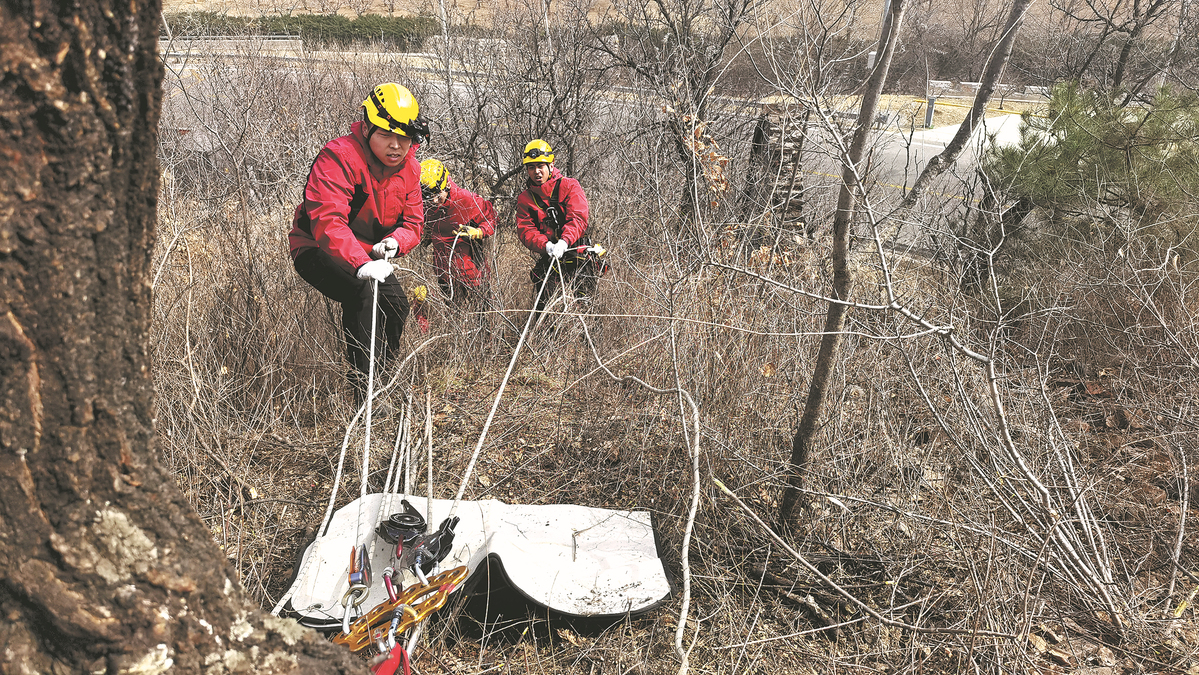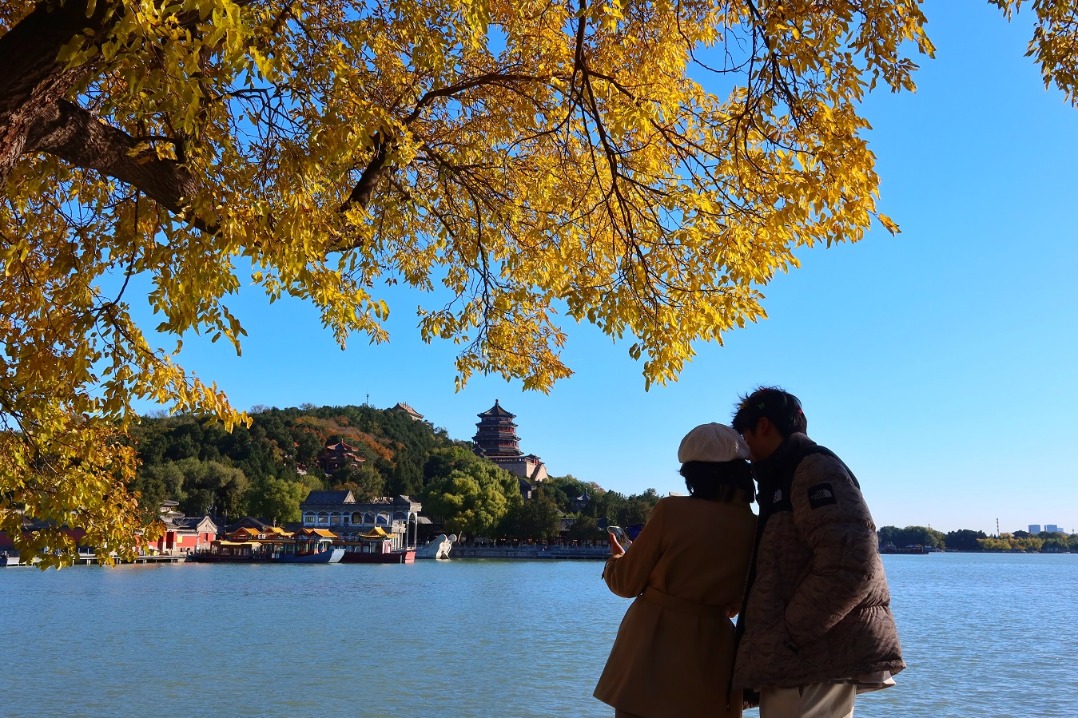Mountain rescue team reaches for peak efficiency
Firefighters strive to keep outdoor enthusiasts out of harm's way


Difficult terrain
Li, 36, who has almost two decades of experience rescuing tourists in the mountains, said the steep terrain does not have typical hiking routes. It takes longer to rescue injured people even though they might only be a short distance away, he said.
"It was only about 300 meters (from the foot of the mountain to where the injured person was)," he said of the May 18 rescue. "We worked in relays to carry the stretcher down the mountain with a pathfinder checking the route, which took about two hours," Li said.
It's also difficult to assess the extent of a person's injuries on the spot. When his team arrived at the scene, the injured person's ankle had stopped bleeding and the firefighters thought his injury might not be too serious.
"We also hadn't brought our first-aid kit to the scene, and we couldn't determine whether the ankle was OK or not due to the (injured person's) waterproof rubber climbing boots," Li said. "But when I attempted to have the injured person moved to the stretcher and asked him if his right toe could touch the ground, I noticed something was wrong.
"When his right foot moved slightly, the entire foot drooped, indicating that his right ankle was badly broken and that the injured person didn't know that yet.
"I guess that the hiker tried to ascend the steep hill by stepping onto a crack in a rock, slipped, and lost his grip, resulting in a serious ankle injury."
The two incidents on one weekend are an indication of the growing need for such rescue services as outdoor sports undergo rapid growth across the country. China's outdoor enthusiast population has reached 130 million, a report released by the General Administration of Sport last October showed. Orders for goods related to outdoor sports rose by 79 percent year-on-year during the first half of last year, an increase of 221 percent compared with the same period in 2019.
"The most common reason for a rescue occurs when people take an outdoor adventure beyond their capabilities, in regard to either their experience or physical strength," said Wang.
"This includes lacking the skills to know what to bring or how to prepare, deviating from established scheduled routes, and getting injured," he said.
Most of the rescue calls are made at sunset, around 6 or 7 pm, or after 10 pm, Wang said.
"Sometimes experienced hikers think they might be able to descend a mountain on their own and they begin searching for alternative routes by themselves. However, when it gets close to 10 o'clock at night, the hikers who have lost their way turn to us for help," he said.
- CIIE to be fully powered by renewable energy
- China's west-to-east gas transmission project marks commissioning of third pipeline
- Xpeng's flying car factory begins trial operations in Guangzhou
- 11 held accountable for Guizhou boat accident
- Schools close as torrential rain from Typhoon Kalmaeigi hits Hainan
- China-Laos sugarcane import season begins





































